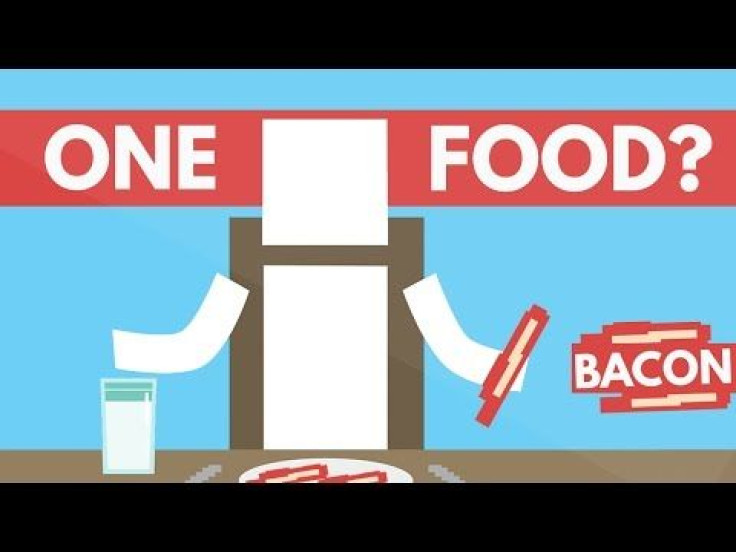What Happens To The Human Body When You Deny It A Balanced Diet, And Eat Only Bacon?

Dietitians and doctors will agree that the key to a healthy lifestyle is a balanced diet and that no single food source is capable of supplying the variety of nutrients the body needs. Eating only a loaf of bread or stalks of celery every day would eventually lead to a lack of protein, which would cause the body to use amino acids within your muscles and convert them to glucose for energy — essentially depriving your muscles of necessary energy.
So, the experts over at Life Noggin explored the idea of a diet solely based on protein alone. Because a steak, for example, doesn’t provide the body with all of the necessary vitamins and minerals, some very consequential effects would take place within the body. Within a few months, scurvy would kick in — a disease caused by a severe lack of vitamin C, which the body requires to form collagen. According to MedlinePlus, scurvy causes weakness, swollen bleeding gums, and skin hemorrhages.
If the protein source was bacon, not only would there be an increased risk of scurvy, but cancer would also come on to the radar. Just 6 strips of bacon (1.8 ounces) a day will increase the individual’s risk of colorectal cancer by 18 percent. So how much bacon is safe to consume?
Bacon is a type of processed meat, which may lead to a higher risk of prostate cancer and other cancers, which is why limiting consumption is recommended. Nitrates are often used as preservatives in processed meats, and convert into N-nitroso in the gut during digestion, which promotes cancer cells. In 2015, the World Health Organization confirmed that humans too frequently consume these food sources of carcinogens. While the United States Department of Agriculture recommends keeping bacon at a strict 1 ounce (140 calories) every once and a while, the expert panel at the American Institute for Cancer Research advises limiting and even avoiding processed meat altogether.



























